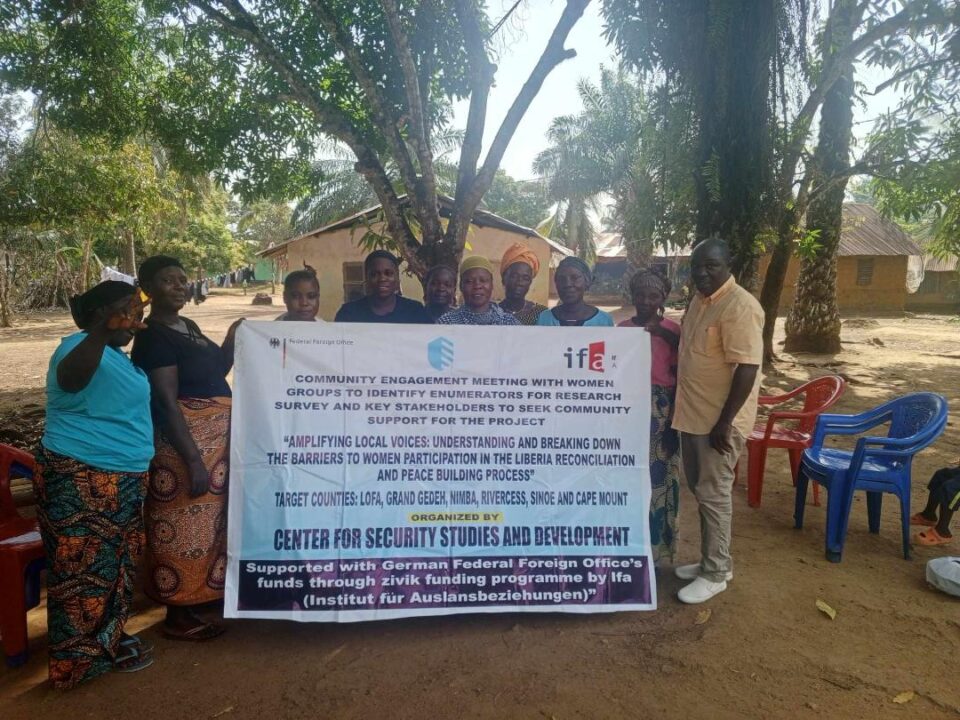To Boost Women Participation In Liberia Peacebuilding And Reconciliation
The Center for Security Studies and Development (CENSSAD) has completed a number of community engagements in Grand Cape Mount and Lofa Counties in line with its project titled, “Amplifying Women Voices: Understanding and Breaking Down Obstacles to Women’s Participation in Liberia Peace building and Reconciliation Processes”.
As part of the engagements, the Program Team of CENSSAD met with a number of women groups and local stakeholders in the counties to explain the objectives of the project and to further seek support to ensure the successful implementation of the project.
A CENSSAD press release on Friday, April 19, 2024 says Following consultations with the women groups, 4 local female enumerators were identified to undertake a baseline study. The project team conducted a brief training session for the selected local enumerators in the two counties. The training covered topics relating to introduction and overview of the study, review of survey protocols. Review of questionnaires and review of research standards and confidentially.
The project seeks to strengthen women’s representation in Liberia’s reconciliation process and ultimately renders women a major implementer of the Liberia Peace Building Plan. Previous attempts to enhance women’s role in Liberia’s reconciliation process have remained largely unsuccessful. Yet, we still lack knowledge about why women’s exclusion prevails. There is broad consensus that reconciliation will only succeed if the entire population feels represented by the process and can express their opinion about the issues that Liberia needs to address to sustain peace.
This is particularly true in the case of women who account for 50% of the population and have a rich knowledge on local threats that undermine reconciliation today. In order to ensure that women play a strong role in the reconciliation process, it is key to understand what barriers they currently face when trying to join the process. By identifying the barriers to women’s participation in the reconciliation process and developing strategies to overcome them, this project ensures that women become a driver of national reconciliation and in turn a major implementer of the country’s 2017 LPP. It targets Rivercess, Cape Mount, Lofa, Nimba, Grand Gedeh and Sinoe Counties.
The project is supported by the German Federal Office’s Funds through the Zivik Funding Programme by ifa (Institut für Auslandsbeziehungen). The Zivik Funding Programme supports civil society actors worldwide in preventing crises, transforming conflicts, and creating as well as stabilizing peaceful social and political systems.
The project contributes to the establishment of an inclusive reconciliation process that aligns with both the 2003 Comprehensive Peace Agreement (CPA) and the 2017 Liberia Peacebuilding Plan (LPP). Various segments of the population have remained by and large excluded from the reconciliation process, with women being the largest one.
The low level of activity of women in Liberia’s reconciliation process is surprising, given their reputation of being strongly committed to prevent intra-state conflict from ever reigniting again. It is hence of utmost importance to understand why Liberian women fail to drive forward the reconciliation process and what can be done to render the latter more inclusive. Understanding and addressing the barriers that prevent them from actively contributing to the country’s reconciliation process will allow women to sustain the peace they once achieved themselves.
T

